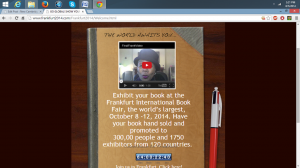Lincoln Writers Group Celebrates 10th Anniversary; Anita M. Harris Among 8 Readers
 My writers group, the Write Stuff, based in LIncoln, MA, Public Library , will be celebrating its 10th anniversary on May 27; I’m delighted to be joining fellow-members in a public reading from our work at the Library, 3 Bedford Rd, at 7 pm.
My writers group, the Write Stuff, based in LIncoln, MA, Public Library , will be celebrating its 10th anniversary on May 27; I’m delighted to be joining fellow-members in a public reading from our work at the Library, 3 Bedford Rd, at 7 pm.
The Write Stuff started in fall 2005 as a series of craft sessions led by Jeanne Bracken, then research librarian, to encourage more local writers to contribute to the Lincoln Review, a local publication founded and edited by Elizabeth Smith, of Lincoln.
According to Neil O’Hara, who volunteers as Write Stuff’s facilitator, “It morphed into a critique group over the winter, led by Jeanne through September 2006, when I took over as facilitator.”
WS meets twice a month all year round, typically with four readings of up to 1000 words. All types of writing are welcome: fiction, non-fiction, poetry, scripts and the like, with no restrictions on content/subject matter, O’Hara said. There is no charge to join or contribute.
“Our goal is to provide constructive criticism to foster better writing–and it works, as any longstanding member will attest.” O’Hara says his own writing has improved over the years, which he credits in part to WS, both because members have provided excellent feedback and because, as facilitator, “I feel an obligation to explain both what works and doesn’t work for me—and also why.”
While intent to publish is not a requirement, five Write Stuff members have published books in the last several years. They include: Bracken, Children With Cancer, a comprehensive reference guide for parents, updated, rev.; Susan Coppock , Fly Away Home; Anita M. Harris, Ithaca Diaries and Broken Patterns: Professional Women and the Quest for a New Feminine Identity 2nd edition; the Rev. Jean F. Risley, Recovering the Lost Legacy:Moral Guidance for Today’s Christians; and Rick Wiggin, Embattled Farmers: Campaigns and Profiles of Revolutionary Soldiers from Lincoln, Massachusetts, 1775-1783;
In addition to providing members with a safe place to test out their work, the group continues to serve its original purpose, O’Hara says. Today, almost every edition of the Lincoln Review includes contributions from one or more WS members.
Readers on Wednesday will include:
Helen Bowden
Carmela D’Elia
Deborah Dorsey
Anita M. Harris
Joyce Quelch
Jean Risley
Ed Robson
Channing Wagg
The library is a member of the Minuteman Library System, is a consortium of 43 libraries with 62 locations and a Central Site staff that work collectively to provide excellent service to its library users. The members include 36 public and 7 college libraries in the Metrowest region of Massachusetts..
For more information about the Write Stuff please contact Neil O’Hara: neiloh52 at gmail.com For directions to the library, please check the library home page at http://www.lincolnpl.org.
–Anita M. Harris
Anita M. Harris is a writer and communications consultant based in Cambridge, MA.New Cambridge Observer is a publication of the Harris Communications Group, a PR and marketing firm based in Kendall Square, Cambridge.
